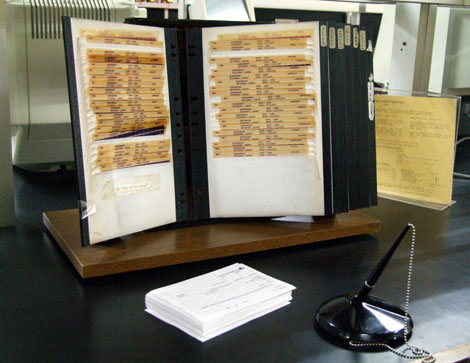
Mapping Collections
Background Reading - Gaining Critical Awareness
Research Problems and Solutions
Mapping Collections
One of the first important realisations about research is understanding how much time it takes. One day’s work in a library will not be enough to do your research. If you are working to a deadline you need to set realistic targets which will involve finding materials, reading, making notes, drafting your ideas and often returning to find more information from libraries and archives collections when necessary. Using archive sources can be particularly time demanding. A leaflet on using archives can be downloaded from connecting histories guidance section.
When doing research it is a good idea to try ‘mapping’ as many collections as possible that are relevant to your project, drawing in resources from as many sources and perspectives as possible. This means going to a library, assessing what information is available, creating an extended ‘list of resources’ that you will be using (including on-line materials). Later, you could make this list accessible to others in your learning package. If you are very lucky, you may uncover some new information that opens up new perspectives on your topic. However, most of the time, doing research involves reinterpreting existing information for you (and your audience’s) own needs.
In terms of the Questions of Travel exhibition, a vital aspect of the research involved trying to find ways of exploring the Benjamin Stone photographic archive itself. This contains literally thousands of photographs which are accessed by an old fashioned card index system rather than a more modern online catalogue. This meant there was only time to view a small proportion of this massive collection. It was essential to be selective in looking for dramatic provocative images that linked Birmingham to the rest of the world and which opened up significant questions about race and culture.
<return to top>
Background Reading - Gaining Critical Awareness
After ‘mapping’ useful collections, you will need to get down to some background reading to help you gain a ‘critical awareness’ and find out what other research has already been done on your topic. Are there any books giving a history of your subject? Are there any academic texts giving specialist readings? Journal articles? Encyclopaedia entries? Exhibition publications? Gaining a critical awareness means weighing up the available evidence and arguments. This is vital to the success of your learning package, but it will be demanding and take time. Some libraries contain huge amounts of reading matter, and of course you will need to discover where the appropriate subject area is housed. However, if there is nothing in your local library, should you arrange a visit to a local university library, or perhaps the British Library in London? [online at http://www.bl.uk]
Getting some advice from others to help direct you to shortcuts - or give you ‘word of mouth’ knowledge at this stage is essential. Do not try to ‘reinvent the wheel’. For the Questions of Travel exhibition, the Head of Birmingham’s Photographic Collections, Pete James, was very helpful in getting a sense of what useful reading material on Stone was available, contemporary and relevant. With this help, two sources of information became central to the development of the project: Edwards, James, Barnes, A Record of England: Sir Benjamin Stone and The National Photographic Association 1897-1910 [V&A Publications, 2007] and Sandra Courtman, A Journey Through the Imperial Gaze: Birmingham’s Photographic Collections and its Caribbean Nexus, Ramamurthy, Anandi and Faulkner, Simon, eds. Visual Culture and Decolonisation in Britain (Ashgate, 2006).
<return to top>
Research Problems and Solutions
To begin with, your critical reading may be a slow and frustrating affair. Stick with it. Research skills involve lots of trial and error. The more time you spend in a library and the better you get to know what it contains, the more your knowledge and project will grow. Be prepared that academic books will be written in technical styles and that libraries such as Birmingham Central often carry texts dating back to the 19th century, written through perspectives that can hinder as well as help. Get the help of library staff and always be very polite to them!
In terms of your developing project, try to keep stepping back from what you are doing and ask yourself - is the focus too narrow or too broad? Is there too little information available to really make your project work? Has too much already been written on the subject? Is it just not interesting enough? Why is it so important that other people need to know about your research? How will it help others? Do you need to cut something out or your project, or bring another element in? Before things get set in stone, be ready to improvise and take chances.
Research problems can often lead to new possibilities. For example, one research ‘problem’ that occurred in Questions of Travel took a positive form. Doing research on Stone began to reveal another important source of photography by a less well known late 19th century traveller from Birmingham: Miss Helen Caddick. There are twelve volumes of Caddick’s diaries available at Birmingham Central Library, containing photographs and descriptions of Africa, Asia, Japan, America, the West Indies etc. At this stage a serious decision was needed. Should Questions of Travel include Helen Caddick as well as Benjamin Stone? Look at the final product in city stories: do you think the final balance works or is it confusing?
Changing the course of your project can be make or break. It will either send you down the wrong path, or unlock the missing piece that brings your whole project alive. Get advice and then take a calculated risk. There is no final right or wrong answer to research.
<return to top>
Author: Dr Andy Green
Image: Dr Andy Green
|
|
|